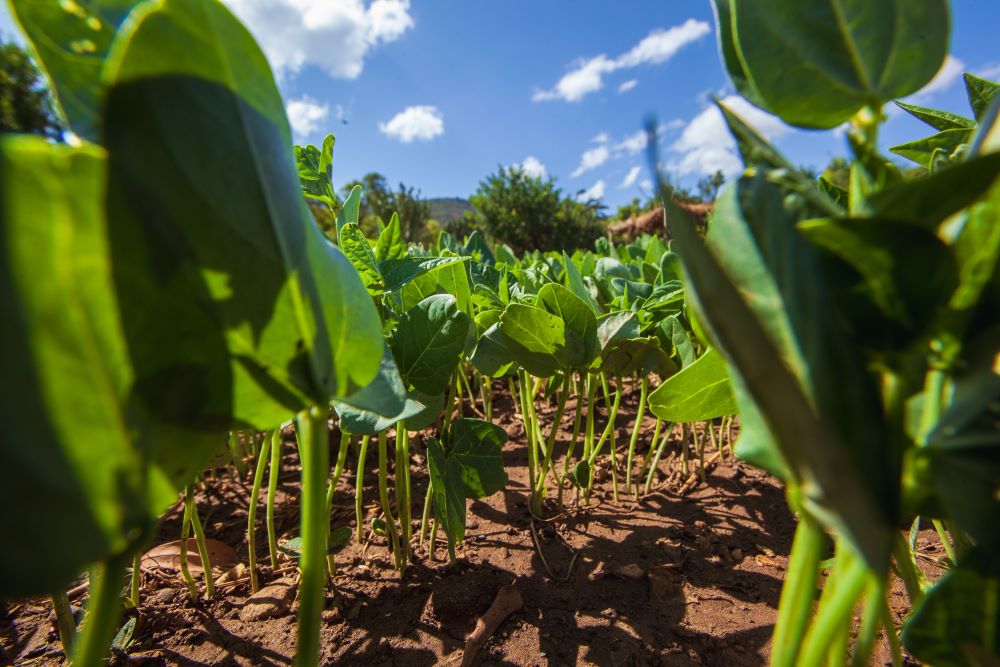Digging in: A consideration of ‘grassroots’ in localisation discourse
DOI:
https://doi.org/10.21153/thl2024art1984Keywords:
grassroots, localisation, humanitarian actionAbstract
Humanitarian localisation seeks to make aid more equitable and effective by empowering local actors. However, ambiguity surrounding the definition of 'local actors' hinders progress in this direction. Despite growing discussions on localisation, there remains a significant gap in understanding the role and consideration of grassroots actors within humanitarian discourse. This article aims to critically review some of the discourse on humanitarian localisation, particularly focusing on the consideration given to grassroots actors, to address this gap and foster a deeper understanding of their significance. Using a scoping review, the article analyses three key articles published between 2020-22, examining their consideration of grassroots actors and concepts within the context of humanitarian localisation. While specific explorations of the idea of 'grassroots' are limited, the reviewed articles reveal critical engagement with related concepts, such as the emergent transnational, transcultural and translocal dynamics that are challenging traditional notions of local action. Expanding the understanding of grassroots beyond traditional boundaries is essential for promoting local empowerment and more effective and inclusive localisation efforts in humanitarian responses. Acknowledging grassroots actors as distinct stakeholders is crucial for advancing equitable and impactful humanitarian practices.
Downloads
References
Arksey, H. and O’Malley, L. (2005). ‘Scoping studies: towards a methodological framework’, International Journal of Social Research Methodology, 8(1):19-32, DOI: 10.1080/1364557032000119616
Baguios, A., King, M., Martins, A. and Pinnington, R. (2021). Are we there yet? Localisation as the journey towards locally led practice: models, approaches and challenges, Overseas Development Institute, accessed 15 April 2023.
Barakat, S. and Milton, S. (2020). ‘Localisation across the humanitarian- development-peace nexus’, Journal of Peacebuilding & Development, 15(2):147-163, DOI: 10.1177/1542316620922805
Barbelet, V., Davies, G., Flint, J. and Davey, E. (2021), Interrogating the evidence base on humanitarian localisation, Overseas Development Institute, accessed 16 April 2023.
Bond. (2021). Catalysing locally led development in the UK aid system, Bond.org.uk, accessed 10 April 2023.
Brown, L. D. and Kalegaonkar, A. (2002). ‘Support organizations and the evolution of the NGO sector’, Nonprofit and Voluntary Sector Quarterly, 31(2):231-258, https://doi.org/10.1177/0899764002312004
Chowdhury, R. (2013). ‘Reconceptualizing the dynamics of the relationship between marginalized stakeholders and multinational firms’ [PhD thesis], University of Cambridge, Cambridge, accessed 26 April 2023.
Chowdhury, R., Kourula, A. and Siltaoja, M. (2021). ‘Power of paradox: grassroots organisations’ legitimacy strategies over time’, Business & Society, 60(2):420-453, DOI: 10.1177/0007650318816954
Development Initiatives. (2021). Global humanitarian assistance report 2021, Development Initiatives, accessed 15 April 2023.
–– –– –– (2022). Global humanitarian assistance report 2022, Development Initiatives, accessed 15 April 2023.
Dunn, E. C. and Kaliszewska, I. (2023). ‘Distributed humanitarianism: volunteerism and aid to refugees during the Russian invasion of Ukraine’, American Ethnologist, 50(1):19-29, https://doi.org/10.1111/amet.13138
Fechter, A. M. and Schwittay. (2019). ‘Citizen aid: grassroots interventions in development and humanitarianism’, Third World Quarterly, 40(10):1769- 1780, https://doi.org/10.1080/01436597.2019.1656062
Flores, W. and Samuel, J. (2019). ‘Grassroots organisations and the sustainable development goals: no one left behind?’, The BMJ, 365, article no. 12269, doi: 10.1136/bmj.l2269
Grimshaw, J. (2020), A guide to knowledge synthesis: a knowledge synthesis chapter, Canadian Institute of Health Research, accessed 1 May 2023.
Inter Agency Standing Committee. (2016). The grand bargain: a shared commitment to better serve people in need, IASC, accessed 10 April 2023.
–– –– –– (2018). Localisation marker definitions paper , IASC, accessed 10 April 2023.
International Council of Voluntary Agencies and HLA. (2019). Unpacking Localization, ICVA, accessed 15 April 2023.
Jalali, R. (2013). ‘Financing empowerment? How foreign aid to southern NGOs and social movements undermines grass-roots mobilization’, Sociology Compass, 7(1):55-73, DOI: 10.1111/soc4.12007
Mac Ginty, R. (2015), ‘Where is the local? Critical localism and peacebuilding’, Third World Quarterly, 36(5):840-856, https://doi.org/10.1080/01436597.2015.1045482
McGee, D. and Pelham, J. (2018). ‘Politics at play: locating human rights, refugees and grassroots humanitarianism in the Calais Jungle’, Leisure Studies, 37(1):22-35, https://doi.org/10.1080/02614367.2017.1406979
Melis, S. and Apthorpe, R. (2020), ‘The politics of the multi-local in disaster governance’, Politics and Governance, 8(4):366-374, DOI: 10.17645/pag.v8i4.3174
Pattnaik, B. K. and Panda, B. (2005). ‘Perceiving the role of grassroots NGOs: from the new social movement perspective’, Social Change, 35(3):1-24, https://doi.org/10.1177/0049085705035003
Peters, M. D. J., Marnie, C., Tricco, A. C., Pollock, D., Munn, Z., Alexander, L., Mclnerney, P., Godfrey, C. M. and Khalil, H. (2020), ‘Updated methodological guidance for the conduct of scoping reviews’, JBI Evidence Synthesis, 18(10):2119-2126, doi:10.11124/JBIES-20-00167.
Pincock, K., Betts, A. and Easton-Calabria, E. (2021). ‘The rhetoric and reality of localisation: refugee-led organisations in humanitarian governance’, The Journal of Development Studies, 57(5):719-734, https://doi.org/10.1080/00220388.2020.1802010
Publications Office of the European Union. (2022). Civil society organisation, EUR-Lex, accessed 26 April 2023.
Roepstorff, K. (2020). ‘A call for critical reflection on the localisation agenda in humanitarian action’, Third World Quarterly, 41(2):284-301, https://doi.org/10.1080/01436597.2019.1644160
Teplitskiy, M., Duede, E., Menietti, M. and Lakhani, K. R. (2022). ‘How status of research papers affects the way they are read and cited’, Research Policy, 51:4, article no. 104484, https://doi.org/10.1016/j.respol.2022.104484
Tjahja, N., Meyer, T. and Shahin, J. (2021). ‘What is civil society and who represents civil society at the IGF? An analysis of civil society typologies in internet governance’, Telecommunications Policy, 45(6), article no. 102141, https://doi.org/10.1016/j.telpol.2021.102141
United Nations. (2016). One humanity: shared responsibility - report of the secretary-general for the world humanitarian summit (A/70/709), United Nations, accessed 5 April 2023.
Vandevoordt, R. (2019). ‘Subversive humanitarianism: rethinking refugee solidarity through grass-roots initiatives’, Refugee Survey Quarterly, 38(3):245-265, https://doi.org/10.1093/rsq/hdz008
Van Oers, L. M., Boon, W. P. C. and Moors, E. H. M. (2018). ‘The creation of legitimacy in grassroots organisations: a study of Dutch community- supported agriculture’, Environmental Innovation and Societal Transitions, 29:55-67, https://doi.org/10.1016/j.eist.2018.04.002
World Economic Forum. (2013). The future role of civil society, WEF, accessed 20 April 2023.







